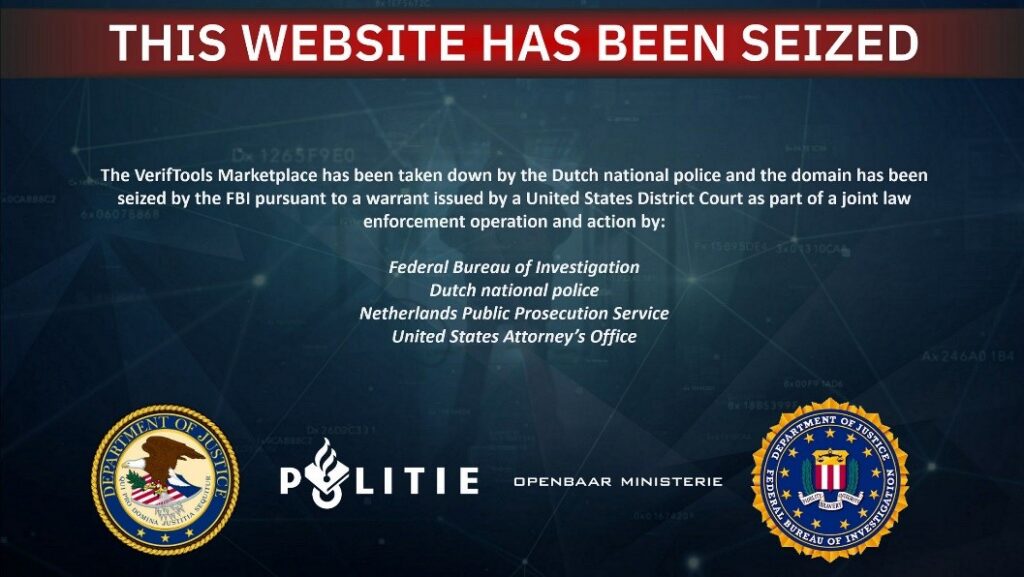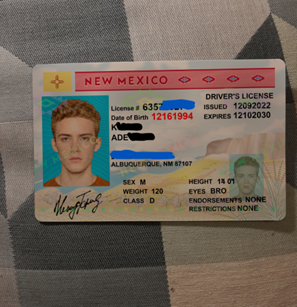|
Getting your Trinity Audio player ready...
|
Summary:
- American and Dutch authorities have seized a $6.4 million fake ID service, with fake identity documents being offered for as little as $9
- No arrests have been made, but servers have been seized and investigations are ongoing
- The seizure comes as governments begin to embrace digital IDs
Authorities from the United States and the Netherlands have busted an online fake ID marketplace, according to a press release by the U.S. Department of Justice (DOJ).
The marketplace, known as VerifTools, sold counterfeit driver’s licenses, passports, and other identification documents. It offered false IDs for multiple countries, including the entirety of the U.S. documents, which cost as little as $9 worth of digital assets.
In its own statement, Dutch Police called the site one of the largest false ID producers on the Internet. It described it as simple as uploading a passport photo, inputting the required false data, and then being given a downloadable false ID image upon payment. It indicated that the primary use of these IDs was to bypass Know Your Customer (KYC) verification.
Two domains associated with the marketplace were seized, as well as a blog. There have been no arrests as of now, but the Dutch Police statement warns that it is in possession of two physical servers and more than 21 virtual servers:
“The police will continue to investigate data on the servers and then it will also be clear whether the administrator and the users can be found.”
It also notes that creating fake IDs carries a maximum penalty of six years’ imprisonment.
“The internet is not a refuge for criminals. If you build or sell tools that let offenders impersonate victims, you are part of the crime,” said Acting U.S. Attorney Ryan Ellison in the DOJ’s statement. “We will use every lawful tool to disrupt your business, take the profit out of it, and bring you to justice. No one operation is bigger than us together. With our partners at every level of law enforcement we will protect New Mexicans and defend those who stand up for our community.”


According to the press release, VerifTools appeared on authorities’ radar while investigating a conspiracy to use stolen identity information to break into digital asset accounts. That led them to VerifTools.
At the time of the seizure, VerifTools apparently had taken in $6.4 million.
The simplicity and scale of the VerifTools operation again challenge the concept of ID verification in the 21st century. With rapidly improving digital tools, creating fake ID documents has never been easier; no doubt this is part of why governments are increasingly examining digital ID programs worldwide. For instance, the European Union announced earlier this year that it was proceeding with a digital driving licence pilot, while the United Kingdom announced in December last year that it planned to roll out digital IDs.
Though critics of such programs point to privacy concerns associated with digital identification, blockchain technology has shown promise as a practical middle ground, allowing for both the security and verifiability needed for digital ID while—via public blockchains—obviating the need for IDs to be strictly controlled by potentially nefarious governments.
Until such a day comes, digital identity fraud will likely continue at the same pace. Indeed, despite the seizure, it appears that a successor service has already appeared and been circulated on Telegram. As reported by The Hacker News, on August 28, someone purporting to be the operator of the original service announced the relaunch of the service with a slightly different domain name.
Watch: Digital Asset Recovery takes token recovery seriously

 02-21-2026
02-21-2026 




